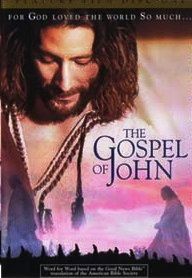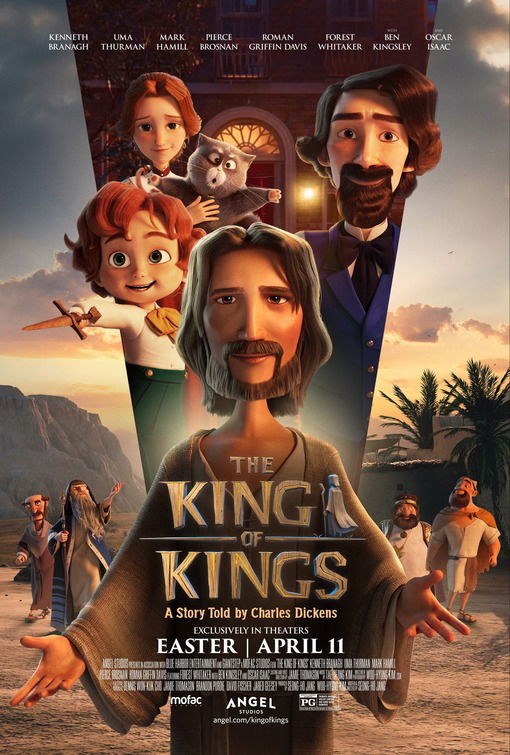
U.S. Reps Fear Disney, Fox, WBD Sports Streaming Platform Will Become Anticompetitive
By Movieguide® Contributor
Disney/ESPN, Fox and Warner Bros. Discovery’s sports-streaming merge is drawing concern from members of Congress who believe the platform will become anticompetitive.
Per Variety, “In a letter sent Tuesday (April 16) to the CEOs of the three companies, Rep. Jerrold Nadler (D.-NY), the ranking member of the House Judiciary Committee, and Rep. Joaquin Castro (D.-Texas) requested answers about the competitive implications of the proposed sports streaming JV.”
Movieguide® previously reported on the venture:
Disney, Warners Bros. and Fox announced that they are joining forces to create a single sports streaming bundle.
Disney CEO Bob Iger said that the entertainment industry will take “an important step forward” with this new move.
Per CNBC, “From Disney, that includes ESPN and its sister networks, such as ESPN2, ESPNU, SECN, ACCN, ESPNEWS, as well as the ABC broadcast network. Warner Bros. Discovery’s networks that showcase sports are TNT, TBS and TruTV. Fox will include the Fox broadcast station along with FS1, FS2 and BTN.”
However, the reps are concerned that the platform will raise prices.
“As programmers, your companies exert tremendous influence over pricing across the live sports TV ecosystem,” Nadler and Castro wrote in a letter. “Upstream, programmers negotiate content licensing deals with sports leagues like the National Football League and the National Basketball Association for the media rights to their sports events. Downstream, programmers determine the terms on which video distributors may license programmers’ sports channels.”
“Without more complete information about the pricing, intent, and organization of this new venture, we are concerned that this consolidation will result in higher prices for consumers and less fair licensing terms for upstream sports leagues and downstream video distributors,” the letter continued.
The two representatives included 19 questions about the joint venture and asked for the “answers to the following questions by April 30, 2024.”
The list of the questions include:
- What are the relevant markets impacted by the Joint Venture?
- How many subscribers is the Joint Venture projected to have within 1, 3, and 5 years of launch?
- Will the Joint Venture distribute channels of non-joint venture partners?
- How will the Joint Venture Partners determine the pricing of their own sports channels (e.g., Fox Sports, ESPN) included in the Joint Venture?
- How do those prices compare to prices at which such channels are currently licensed to third-party MVPDs or virtual MVPDs?
- Will the Joint Venture Partners implement provisions to prevent anti-competitive sharing of pricing or other competitively sensitive information among each other?
- What measures will the Joint Venture Partners implement to prevent interlocking directorates?
- When will the pricing of the Joint Venture be determined and announced?
- What League Properties does each Joint Venture Partner currently hold the rights to, where “League Property” means a content licensing agreement with any of the following: the NFL, the NBA, the MLB, the NHL, the NCAA Basketball Tournament, NCAA Football (by major league) and NCAA Basketball (Men’s and Women’s). What League Properties to licensors other than the Joint Venture Partners hold the rights to?
- For each of the sports channels that will be included in the new service, how many hours of live events for League Properties does the channel transmit per calendar year?
- To what extent will customers be offered opportunities to bundle other products offered by the Joint Venture partners with the Joint Venture? Will Joint Venture customers be offered the opportunity to bundle the Joint Venture with direct-to-consumer products of third parties?
- Will the Joint Venture Partners offer stand-alone streaming sports services? If the Joint Venture Partners decide to offer independent offerings from the Joint Venture, how will firewalls be implemented to ensure there is no collusion between the Joint Venture and their independent streaming sports offers?
- The Joint Venture Partners currently bid against each other for sports content. However, the new venture will be pooling sports content among the Joint Venture Partners. Will the Joint Venture Partners continue to bid competitively against one another for sports rights as they become available?
- Will the Joint Venture Partners make the channels they include in the Joint Venture available to third parties on non-discriminatory terms?
- Will the Joint Venture partners negotiate jointly with MVPDs to license sports channels? Also, with virtual MVPDs?
- Will the Joint Venture Partners continue to require that MVPDs and virtual MVPDs purchase other programming in addition to their sports channels as a condition of their licensing agreements? Will the Joint Venture Partners continue to require penetration minimums for their sports and other channels when negotiating with MVPDs and other virtual MVPDs?
- The companies propose to engage in a form of vertical integration, leveraging their content assets into a virtual MVPD. In previous transactions involving vertical integration between programmers and MVPDs (e.g., Comcast-NCBU, AT&T-Time Warner), the parties made certain commitments to submit licensing negotiations to binding
arbitration. Will joint venture partners make similar commitments?- Prior to negotiation of the Joint Venture, what standalone plans had each of the Joint Venture Partners considered for making their sports channels available via streaming, including but not limited the launch of a new virtual MVPD or inclusion in the Joint Venture Partner’s existing streaming service (e.g., Disney+ or MAX).
- Do you anticipate the joint venture will be required to make a filing with the Department of Justice and Federal Trade Commission under the Hart-Scott-Rodino Act?
The deal has elicited frustration from others in the streaming space. Movieguide® reported:
Fubo CEO David Gandler is unhappy about the proposed bundle from Disney, Fox and Warner Bros. Discovery, believing it violates antitrust laws and costs consumers billions of dollars every year.
“This is a duel to the death. It has been when we started this company. We’re fighting for consumers. We’re fighting for our customers. We’re fighting for the tens of billions of dollars that are wasted annually on consumers paying for the same content multiple times,” Gundler said during a Q4 earnings call. “This is a very important process. We are sticking to our principles, to our guns.”
“[The bundle] is just the latest example of the sports cartel’s attempt to block and steal Fubo’s vision of what a sports streaming bundle should look like, resulting in billions of dollars of damages to our business,” he added.
Questions or comments? Please write to us here.


 - Content:
- Content: 

